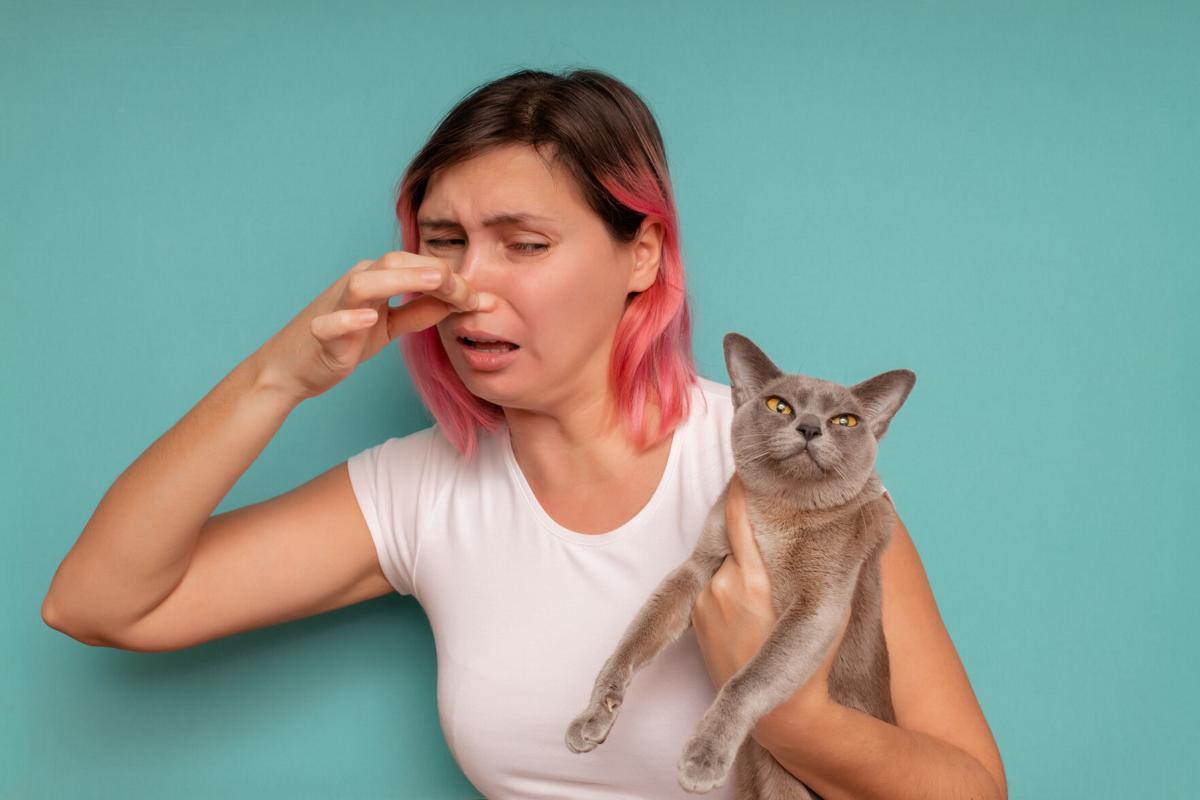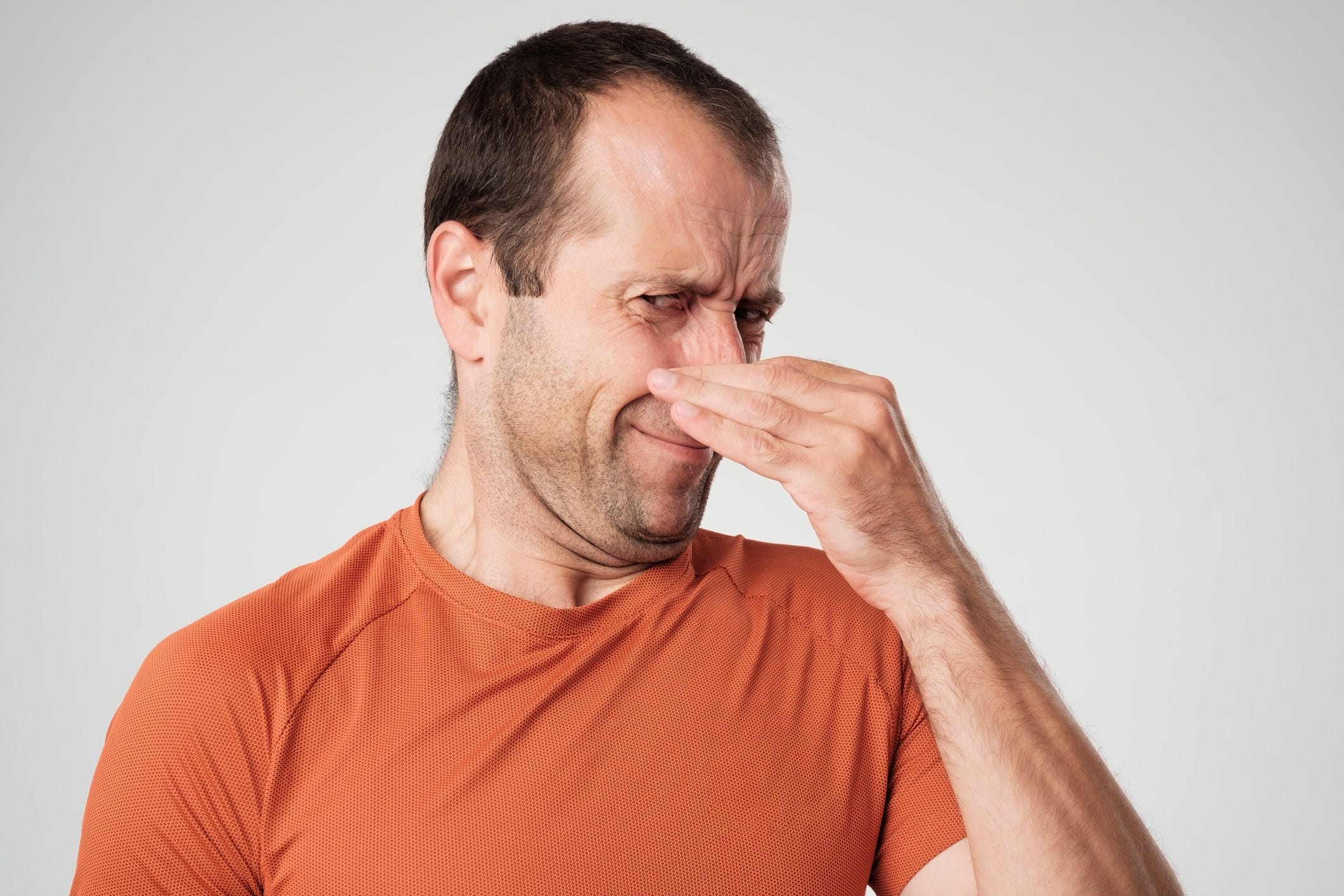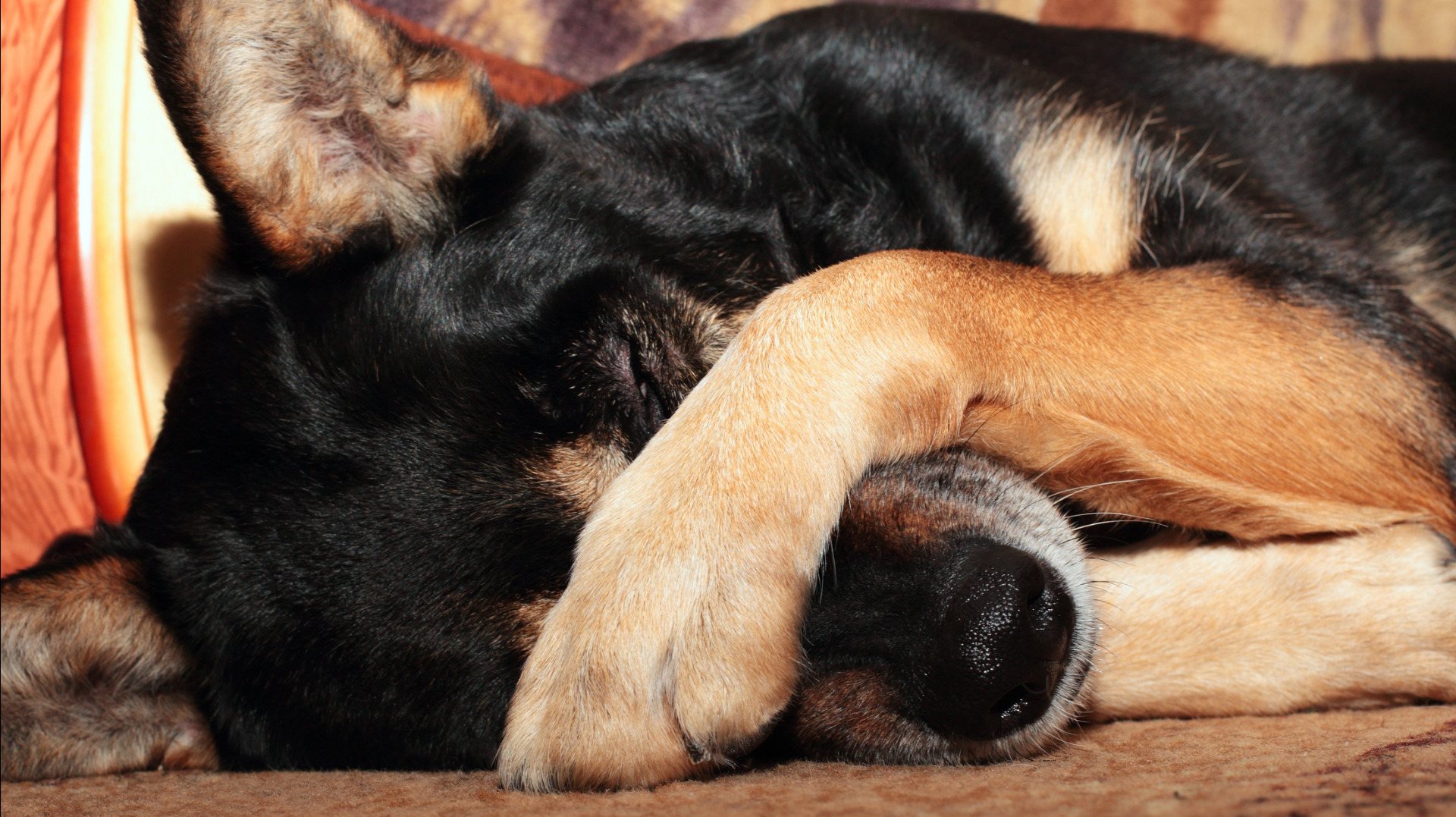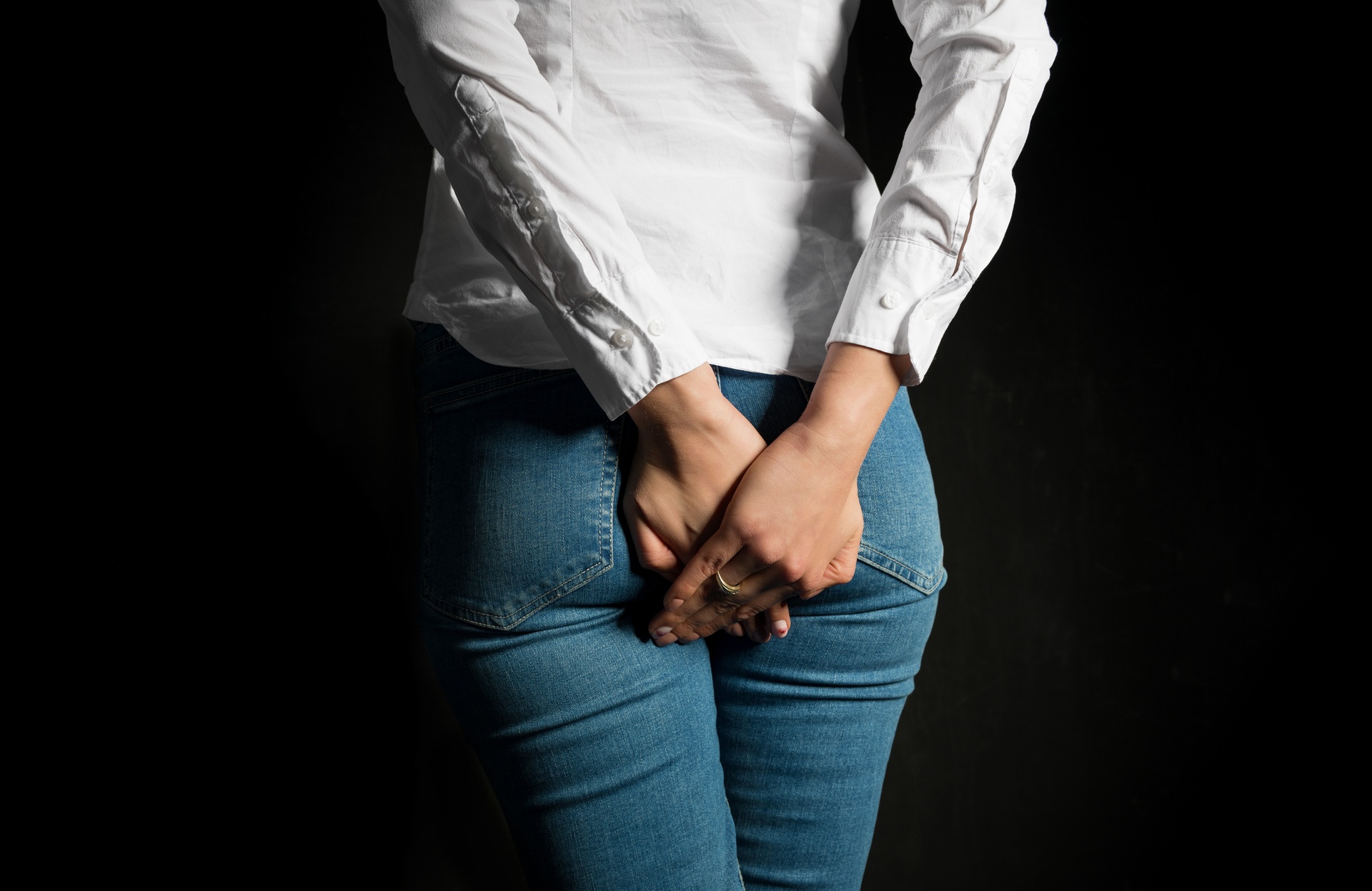

FAQs
Why Does My Cats Fart Stink
Modified: August 5, 2023
Learn why your cat's fart may have a strong odor and get answers to other general questions about feline flatulence.
(Many of the links in this article redirect to a specific reviewed product. Your purchase of these products through affiliate links helps to generate commission for Under-tec.com, at no extra cost. Learn more)
Table of Contents
Why Does My Cat’s Fart Stink
Cats are adorable companions, but sometimes their foul-smelling gas can leave you questioning what they’ve been eating or if there’s something wrong with their digestive system. It’s not uncommon for cat farts to have an unpleasant odor, and there are several reasons why this may be the case.
One of the main factors contributing to your cat’s smelly farts is their unique digestive system. Cats are obligate carnivores, which means their bodies are designed to primarily digest meat. As a result, their digestive tracts are shorter compared to herbivores or omnivores, leading to a more rapid breakdown of their food.
This quick digestion process in cats can result in undigested proteins reaching the large intestine, where they are broken down by bacteria. This breakdown produces gases such as hydrogen sulfide, which is known for its pungent smell. Therefore, the foul odor of your cat’s farts can be attributed to the fermentation of proteins in their digestive system.
Aside from their natural digestive process, diet plays a crucial role in the smelliness of your cat’s farts. If your cat’s diet comprises primarily of high-protein foods, such as certain types of cat food or raw meat, their farts are likely to have a stronger odor due to the high protein content. Additionally, certain ingredients like fish or eggs are more likely to produce pungent-smelling gas.
In some cases, smelly cat farts can also indicate underlying health issues. Gastrointestinal problems, such as inflammatory bowel disease or gastrointestinal infections, can alter the normal digestive process and result in foul-smelling farts. If your cat’s farts suddenly become unusually smelly or are accompanied by other symptoms like diarrhea, vomiting, or changes in appetite, it’s recommended to consult a veterinarian for a proper diagnosis and treatment.
To manage stinky cat farts, adjusting their diet can make a difference. Consider switching to high-quality cat food that is specifically formulated for digestive health. Look for brands that use limited, easily digestible ingredients, and avoid foods that contain artificial additives, fillers, or excessive amounts of fiber.
You can also try feeding your cat smaller, more frequent meals throughout the day to aid in digestion. Additionally, incorporating natural remedies like probiotics or digestive enzyme supplements, after consulting with your veterinarian, may help improve your cat’s gastrointestinal health.
Ultimately, it’s essential to monitor your cat’s overall well-being. Regular check-ups with a veterinarian can identify any underlying health issues that may be causing the smelly farts. Remember, prevention and early detection are key to ensuring your feline friend remains happy and healthy.
Introduction
Cats are beloved pets known for their quirky behaviors and endearing personalities. However, one aspect of cat ownership that may not be as endearing is the not-so-pleasant aroma that occasionally wafts from their behinds. That’s right, we’re talking about cat farts.
While it may seem like a trivial topic, understanding why your cat’s farts stink can provide valuable insight into their health and overall well-being. It’s important to note that occasional gas is a natural bodily function for cats, just like it is for humans. However, if your cat’s farts consistently emit a foul odor, it could be an indication of an underlying issue.
This article will explore the reasons behind the stinky nature of cat farts, covering both normal digestive processes and potential health concerns. By shedding light on this topic, you’ll be equipped with the knowledge to better care for your feline friend and ensure their comfort.
Throughout this article, we’ll discuss the unique digestive system of cats, the role of diet in smelly cat farts, and various health issues that may contribute to the unpleasant odors. Additionally, we’ll provide practical tips for managing and reducing the stinkiness of your cat’s gas.
As cat owners, we want the best for our furry companions, and that includes their digestive health. By gaining insight into why cat farts can be particularly pungent, we can take steps to minimize discomfort and improve our cats’ overall well-being.
So, let’s embark on this journey of understanding why your cat’s farts stink, and explore strategies to keep your feline friend happy and odor-free!
Understanding the Digestive System of Cats
In order to comprehend why your cat’s farts may have an unpleasant odor, it’s helpful to have a basic understanding of their digestive system. Cats are obligate carnivores, which means their bodies are designed to thrive on a diet consisting mainly of meat.
Unlike herbivores or omnivores, cats have a relatively short and straightforward digestive tract. Their stomachs are acidic, allowing for efficient digestion of proteins from meat. The food travels from the stomach to the small intestine, where vital nutrients like proteins, fats, and carbohydrates are absorbed into the bloodstream.
However, it’s important to note that the shorter digestive system of cats leads to a quicker breakdown and transit of food. This process is beneficial for their natural diet of meat, which requires less time to break down compared to plant matter. However, it also means that undigested proteins can reach the large intestine faster.
Once in the large intestine, bacteria there start breaking down these undigested proteins through a process called fermentation. As a result of this breakdown, gases like hydrogen sulfide, methane, and ammonia are produced. These gases are responsible for the foul odor that often accompanies cat farts.
Cats’ unique digestive system also affects the frequency and texture of their bowel movements. It’s normal for cats to have firm, well-formed stools due to efficient digestion. The shorter transit time for their food means less water is absorbed from the intestine, contributing to the firmer consistency of their feces.
Understanding the streamlined digestion process in cats and how it relates to their diet and bowel movements is crucial for maintaining their overall health. By recognizing this natural process, you’ll be better equipped to address any potential issues related to your cat’s digestive system, including smelly farts.
Now that we have a grasp on cats’ digestive system, let’s explore the factors that can contribute to the smelly nature of their farts.
Common Causes of Stinky Cat Farts
Cat farts can sometimes clear a room with their pungent odor. While occasional gas is normal for cats, consistent stinkiness might be a cause for concern. Let’s explore some common causes of stinky cat farts:
- Diet: The food your cat consumes plays a significant role in the smell of their farts. High-protein diets, especially those containing ingredients like fish or eggs, tend to produce more odorous gas. Changes in diet or consuming low-quality cat food with fillers can also cause digestive issues and lead to stinky farts.
- Food Intolerances: Just like humans, cats can develop food intolerances or sensitivities. Certain types of ingredients, such as grains or dairy products, might not sit well with their digestive system. These intolerances can result in smelly farts along with additional symptoms like diarrhea or vomiting.
- Speed of Food Consumption: If your cat eats too quickly, they might swallow air along with their food. This excess air can contribute to gassiness and result in stinky farts.
- Bacterial Imbalance: A healthy balance of gut bacteria is essential for proper digestion. However, disruptions in the gut microbiota can occur due to factors like stress, illness, or the use of antibiotics. An imbalance in the gut bacteria can lead to excessive gas production and subsequently, malodorous farts.
- Digestive Disorders: Some digestive disorders, such as inflammatory bowel disease, gastrointestinal infections, or pancreatitis, can lead to smelly farts in cats. These conditions can cause inflammation or disruptions in the digestive process, resulting in foul-smelling gas.
- Other Health Conditions: In rare cases, underlying health issues like gastrointestinal blockages or intestinal parasites can contribute to stinky cat farts. These conditions should be diagnosed and treated by a veterinarian.
If your cat’s farts are consistently stinky, it’s crucial to address the underlying cause. Making dietary modifications, such as switching to a high-quality cat food or eliminating potential food allergens, can help reduce the odor. Additionally, incorporating probiotics or digestive enzyme supplements under veterinary guidance may aid in restoring the balance of gut bacteria and improving digestion.
While occasional stinky farts may not be a cause for concern, persistent foul-smelling gas, especially when accompanied by other symptoms like diarrhea or changes in appetite, should prompt a visit to the veterinarian. They can perform a thorough examination and recommend appropriate tests to identify any underlying health issues that may be causing the stinkiness.
Now that we have explored the causes of stinky cat farts, let’s delve into the effect of diet on their flatulence.
Diet and its Effect on Cat Farts
The saying, “You are what you eat,” applies to our feline companions as well. Diet plays a significant role in the overall health of cats, including the smelliness of their farts. Let’s take a closer look at how diet can affect your cat’s flatulence:
High-Protein Diets: Cats are obligate carnivores, which means they require a diet rich in animal-based proteins. However, a diet high in protein can contribute to more pungent farts. Proteins are broken down into amino acids during digestion, and bacteria in the large intestine further metabolize these amino acids, resulting in the production of gases with strong odors, such as hydrogen sulfide.
Low-Quality Foods: Feeding your cat low-quality cat food that contains fillers, artificial additives, or excessive amounts of fiber can be a contributing factor to stinky farts. These ingredients are often difficult for cats to digest, leading to fermentation in the gut and increased gas production.
Ingredients: Certain ingredients are more likely to cause flatulence in cats. For example, fish-based diets can lead to fishy-smelling farts, while foods containing eggs can produce sulfur compounds in the digestive tract, resulting in unpleasant odors.
Food Intolerances and Allergies: Cats can develop food intolerances or allergies, which can cause gastrointestinal disturbances and flatulence. Common allergens for cats include grains, dairy products, and certain proteins. If your cat is intolerant or allergic to a specific ingredient, their farts may become smellier as a result.
Transitioning Diet: Abruptly switching your cat’s diet or introducing new foods too quickly can disrupt their digestive system and lead to increased flatulence. To minimize this, it’s important to gradually transition your cat to a new diet over the course of several days, allowing their digestive system to adjust.
To manage the effect of diet on your cat’s flatulence, consider feeding them high-quality cat food that is formulated to support their digestive health. Look for brands that use quality proteins, limited fillers, and natural ingredients. Some cat foods also include additional digestive enhancers like prebiotics and dietary fibers, which can aid in reducing gas production and promoting a healthy gut.
Keep in mind that a balanced diet is essential for your cat’s overall well-being, and consulting with your veterinarian can help you make informed decisions about their nutritional needs. By providing a diet that supports proper digestion and meets their specific dietary requirements, you can help alleviate the smelliness of their fart and contribute to their overall digestive health.
Now that we understand the effect of diet on cat farts, let’s explore potential health issues that may contribute to foul-smelling flatulence.
Health Issues that May Lead to Smelly Cat Farts
Foul-smelling cat farts can sometimes be an indication of underlying health issues that require attention. If your cat’s flatulence consistently emits an unpleasant odor, it’s important to consider potential health concerns. Here are some health issues that may contribute to smelly cat farts:
Gastrointestinal Disorders: Conditions like inflammatory bowel disease (IBD) or gastrointestinal infections can disrupt the normal digestive process and lead to malodorous farts. IBD is characterized by chronic inflammation of the digestive tract, while infections can cause inflammation and imbalances in gut bacteria, resulting in smelly gas.
Exocrine Pancreatic Insufficiency (EPI): EPI is a condition characterized by the inability of the pancreas to produce sufficient digestive enzymes. Without these enzymes, proper digestion of food becomes challenging, leading to malabsorption and increased gas production. Foul-smelling farts are a common symptom of EPI.
Food Sensitivities or Allergies: In some cases, cats may develop sensitivities or allergies to certain food ingredients, such as grains or proteins. These sensitivities can cause gastrointestinal distress and contribute to the smelliness of their farts. Identifying and eliminating the trigger ingredients from your cat’s diet can help alleviate the issue.
Intestinal Parasites: Worms or other intestinal parasites can disrupt the normal digestive process and lead to increased flatulence with a foul odor. If your cat has parasites, you may notice other symptoms like diarrhea, weight loss, or a potbellied appearance. A veterinarian can diagnose and provide appropriate treatment for parasitic infections.
Pancreatitis: Pancreatitis is an inflammation of the pancreas, which can disrupt the production of digestive enzymes. This condition can lead to poor digestion and increased gas production, resulting in smelly farts. Symptoms of pancreatitis in cats may also include vomiting, loss of appetite, and abdominal pain.
Dietary Indiscretions: Cats are curious creatures and may ingest non-food items or consume something they shouldn’t. This can lead to gastrointestinal disturbances, such as blockages or irritations, which can cause smelly farts. If you suspect your cat has ingested something unusual, it’s important to seek veterinary assistance promptly.
If your cat’s farts consistently have a foul smell or are accompanied by other concerning symptoms like diarrhea, vomiting, or changes in appetite, it’s recommended to consult a veterinarian. They can perform a comprehensive examination, conduct any necessary tests, and provide an accurate diagnosis.
Proper identification and treatment of underlying health issues will not only help reduce the smelliness of your cat’s farts but also improve their overall health and well-being.
Now that we’ve explored the potential health issues contributing to smelly cat farts, let’s move on to practical tips for managing and reducing the stinkiness.
Tips for Managing Stinky Cat Farts
If your cat’s farts have an unpleasant odor, there are several steps you can take to manage and reduce the stinkiness. Here are some tips to help you tackle the issue:
- High-Quality Diet: Opt for high-quality cat food that is specifically formulated to promote digestive health. Look for brands that use quality protein sources and avoid fillers or artificial additives. These diets are designed to be easily digestible and can help reduce the production of smelly gases.
- Dietary Adjustments: Consider changing your cat’s diet to eliminate potential allergens or known triggers for gastrointestinal issues. Some cats may benefit from a limited ingredient diet or a hypoallergenic formula. Consulting with your veterinarian can help you determine the best dietary approach for your cat.
- Slow Feeding: Some cats tend to eat quickly, which can result in swallowing excess air and contribute to gas production. Encourage slower eating by using puzzle feeders or dividing meals into smaller, more frequent portions. This can help reduce flatulence in cats.
- Probiotics and Digestive Enzymes: Probiotics are beneficial bacteria that can support the balance of the gut microbiota, aiding in digestion and reducing gas. Digestive enzyme supplements can also improve the breakdown of nutrients in the digestive system. Talk to your veterinarian about incorporating these supplements into your cat’s routine.
- Hydration: Ensure your cat has access to fresh water at all times. Proper hydration can help maintain healthy digestion and prevent constipation, which can contribute to smelly farts.
- Regular Vet Check-ups: Regular veterinary check-ups are essential for your cat’s overall health. Monitoring their digestive system and addressing any potential issues early on can help prevent the development of chronic conditions that may cause persistent smelly farts.
- Slow Transition of Diet: When changing your cat’s diet, do so gradually over several days to allow their digestive system to adjust. Sudden dietary changes can disrupt the balance in their gut and lead to increased gas production.
- Environmental Stress Reduction: Cats are sensitive creatures, and stress can influence their digestive health. Minimize environmental stressors and provide a calm, comfortable space for your cat to reduce the likelihood of gastrointestinal disturbances.
Remember, each cat is unique, and what works for one may not work for another. It’s important to observe your cat, monitor their reactions to dietary changes, and seek veterinary guidance when necessary. Your veterinarian can provide personalized advice tailored to your cat’s specific needs.
By implementing these tips, you can help manage your cat’s stinky farts and promote their overall digestive health. Maintaining a healthy diet, proper hydration, and stress-free environment will contribute to a happier and more pleasant-smelling experience for both you and your feline friend.
Now that we’ve covered tips for managing smelly cat farts, let’s discuss when it’s appropriate to seek veterinary help.
When to Seek Veterinary Help
While occasional smelly cat farts can be a normal part of a cat’s digestive process, there are instances where it’s important to seek veterinary help. Here are some situations in which you should consult with a veterinarian:
- Consistently foul odor: If your cat’s farts consistently have a very strong and unpleasant odor, it’s worth discussing with your veterinarian. This may indicate an underlying issue that requires investigation and treatment.
- Accompanying symptoms: If your cat’s smelly farts are accompanied by other symptoms such as diarrhea, vomiting, changes in appetite, weight loss, or lethargy, it’s crucial to seek veterinary attention. These can be signs of underlying health concerns that need to be addressed.
- Change in behavior: If your cat’s farting behavior suddenly changes or becomes more frequent, it may be a cause for concern. Any abrupt changes in their flatulence pattern may signal an underlying issue that requires medical attention.
- Persistent gastrointestinal issues: If your cat experiences recurring digestive disturbances, such as chronic diarrhea or vomiting, along with foul-smelling farts, it’s advisable to consult with a veterinarian. These symptoms can be indicators of more significant gastrointestinal issues that need to be addressed.
- Unexplained weight loss: If your cat is experiencing smelly farts, combined with unintended weight loss, it’s crucial to seek veterinary attention. Unexplained weight loss can be a symptom of various underlying health problems, including those affecting the digestive system.
Your veterinarian will perform a thorough examination, which may include diagnostic tests such as blood work, fecal analysis, or imaging studies, to determine the underlying cause of your cat’s smelly farts. Based on the findings, they will provide a proper diagnosis and recommend an appropriate treatment plan.
Early detection and intervention are crucial in ensuring your cat’s health and well-being. Addressing any underlying health issues promptly can help prevent the progression of more severe conditions and improve your cat’s overall quality of life.
Now that we have discussed when to seek veterinary help, let’s summarize the key points we’ve covered throughout this article.
Conclusion
Understanding why your cat’s farts stink can provide valuable insights into their health and well-being. While occasional gas is normal, consistently foul-smelling farts may indicate underlying issues that require attention. By investigating potential causes and implementing preventive measures, you can help manage the stinkiness and promote your cat’s digestive health.
We explored the unique digestive system of cats, their dietary needs, and how these factors contribute to the smelliness of their farts. Cats’ short and efficient digestive tracts, designed for a meat-based diet, can result in the rapid breakdown and fermentation of proteins, leading to malodorous gases.
We discussed common causes of stinky cat farts, including high-protein diets, food intolerances, and dietary indiscretions. Additionally, we highlighted potential health issues such as gastrointestinal disorders, food sensitivities, and pancreatic insufficiency that may contribute to foul-smelling flatulence.
To manage stinky cat farts, we provided practical tips such as feeding a high-quality diet, making dietary adjustments, incorporating probiotics and digestive enzymes, and ensuring proper hydration. We also emphasized the importance of regular veterinary check-ups and seeking professional help when necessary.
Remember, each cat is unique, and what works for one may not work for another. It’s crucial to observe your cat’s reactions, monitor their symptoms, and consult with a veterinarian for personalized advice.
By taking proactive steps to address the causes of smelly farts in cats, you can improve their overall digestive health and create a more pleasant environment for both you and your furry friend.
So, next time your cat emits those pungent farts, you can approach the situation armed with knowledge and understanding, ready to tackle the issue and ensure your cat’s comfort and well-being.










